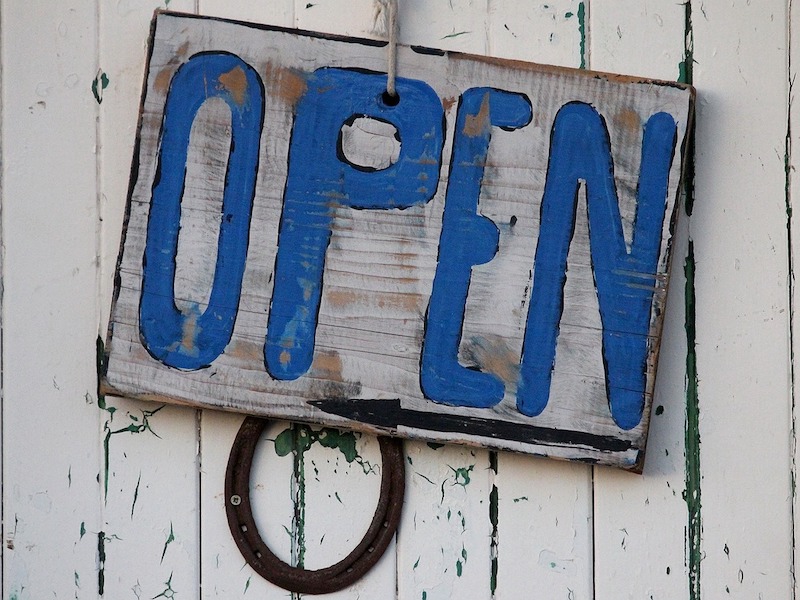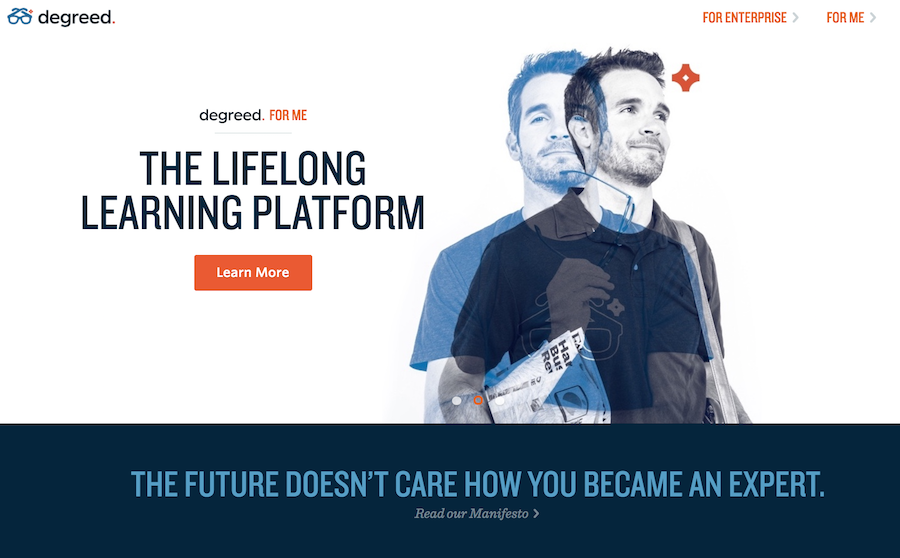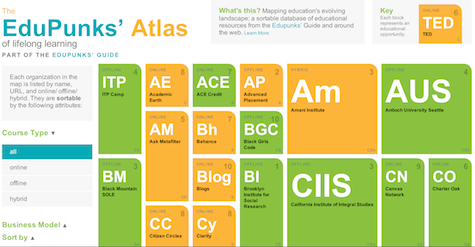
The catalyst for this particular post is the recent launch by Creative Commons of ccLearn, a division of Creative Commons, “dedicated to realizing the full potential of the Internet to support open learning and open educational resources.”
Open Educational Resources, or OER, as the Wikipedia entry will tell you in more detail, is a term that came out of UNESCO’s 2002 Forum on the Impact of Open Courseware for Higher Education in Developing Countries funded by the William and Flora Hewlett Foundation. It is intended to denote “educational materials and resources offered freely and openly for anyone to use and under some licenses re-mix, improve and redistribute.”
My sense is that this is a term and a movement much more visible in the international development and non-governmental organization (NGO) community than in the domestic United States nonprofit community. Perhaps the most visible manifestation of it here in recent years is the MIT Open Courseware Initiative.
As the involvement of MIT might suggest, OER tends to be associated more with the academic sector than with the association, charitable organization, or corporate sector. The availability and inclination of academic subject matter experts to participate in a movement of this sort is perhaps a driving reason for the academic stronghold in the movement, but certainly portions of the work being done by technical and management support organizations like Tech Soup (see TechSoup, Learning, and Web 2.0) fit under the OER umbrella, and groups like LINGOs are primed for making a more meaningful contribution to it than they appear to have done to date.
A handful of sites you will want to visit if you take time to find out more about OER:
Sources for Open Education:
Connexions
dgCommunites: Knowledge Sharing and Collaboration Worldwide
FlossCom.Net: Community-based Educational Approaches
HippCampus
ITrainOnline (see also Nonprofit Online Learning: LINGOs, ItrainOnline, STEP)
Live Content
OLCOS
OER Commons
Open Courseware Consortium
OpenLearn
Open Media Commons
Sofia: Sharing of Free Intellectual Assets
The Bazaar
WikiEducator
Reports and Guides:
Hewlett Foundation Open Educational Resources Report
Open Educational Content/olcos/introduction
OER Introduction Booklet (from Development Gateway)FlossCom.Net, which is building its efforts on the open source Ubuntu operating system, also offers the following brief introduction via SlideShare:
Blogs
There are quite a few blogs out there that are either dedicated to OER or discuss it with some frequency. The following is just a very small sampling:
Designed to Inspire: Links to the beginning of a great 15 weeks series covering a course on open education with David Wiley (see below)
OCWBlog: Blogging in the OpenCourseWare (and OER) Movements
OERBlogs: An aggregator of open education and open courseware blogs
Open Education News: A a daily dose of the most relevant open education news from around the world
OERderves: A blog dedicated to open education
ZaidLearn: A link to a recent posting by Zaid on open education.
There is still much to be done to raise awareness and implement standards across the OER movement, but the ccLearn project represents one more significant step forward in improving access to OER materials and information. For nonprofits on tight budgets that are seeking educational resources, this may be another instance of the Web windfall at work. For associations, many of which tend to be, in my opinion, overly and unnecessarily proprietary about their intellectual property, the process by which the movement has developed and continues to develop is worth observing. For corporations, OER may represent a highly productive way to engage in the global community.
I won’t pretend that this is in any way a comprehensive overview of OER. If there are organizations I have not listed above that you feel deserve mention or if you have observed or experienced the pros or cons of OER first hand, please comment.
Postscript, 24-Sept-07: Based on an e-mail related to the to the original posting, I have added OER Commons to the list of sites above. The Institute for the Study of Knowledge Management in Education (ISKME), the group behind OER Commons was recently named a 2007 Awards Laureate by The Tech Museum of Innovation. Additionally, based on the comment below from Jennifer Maddrell, I’d like to highlight the Introduction to Open Education Course currently under way with Professor David Wiley at Utah State University. As Jennifer notes, this syllabus represents a great addition to the list above. (And many thanks to Stephen Downes for posting the link that led Jennifer here.) Finally, many thanks to Andreas Meiszner from FLOSSCom (whose site is listed above) for his comments. Based on these, I have added the OpenLearn project to the list above, and the presentation Andreas references follows.
Related Posts:





University of Oxford has launched its Great Writers Inspire Project website (writersinspire.org), which has Creative Commons essays, pictures, ebooks, and audio and video lectures from some of the great minds in literature studies.
Pingback: Free Net Generation Learner Course | Mission to Learn
I read your post from a link from Stephen Downes and wanted to add a link to an Introducation to Open Education course being facilitated by Professor David Wiley at Utah State University – see https://opencontent.org/wiki/index.php?title=Intro_Open_Ed_Syllabus
Dozens of participants from around the world are reading the course material (good additions to your list above) and preparing weekly blog reflections. For anyone interested in the open education “movement”, this course site is also a great place to start.
Hello Jeff
Let me just pick up on a couple of your points and also explain a bit more what we at the FLOSSCom project aim to do.
The open educational resource movement is indeed about sharingcontent and to allow others to use it and edit it. As you point out this is currently most visible at the higher education sector, though the K12 school education sector – at least the European one – has also a strong stand. Somehow they seem to have less problems of sharing.
The OER movement was partly inspired by the open source software movement where you give software away for free and allow others to use and improve it (this is the open side). As we have seen this model works out well from a business perspective and from the quality perspective. What we further can see at open source is the benefit of “collaborative production”. Taking Wikipedia we see that this principle also works on the content side (I know that there are quality concerns, but I also know how many bad lectures I listened to at my university time – so everything is relative).
With OER we are – by now – still at an early stage as we make the content “free” available and “open” to be modified, remixed and improved. The second part however, the modification, remix and improvement, as we see it in open source or at Wikipedia still does not take that much place. There are several large scale projects today that aim to foster exactly this second aspect. The OpenLearn project (https://www.open.ac.uk/openlearn/home.php) in example not only provides open educational resources, but also features a learning environment where people can engage with the content. The project is still fairly young and constantly improving by closely monitoring users’ feedback.
Our FLOSSCom project enters somewhere here. We believe that education can learn a lesson from open source communities on collaborative content development and the establishment of learning communities. I am not talking about the use of open source software in education, but the use of the principles of open source communities for education. The open source case also shows that “content” is more than only some “courses” or instructional materials and that content is not “static”. It also provides some insights on who develops content for which purpose and how.
A presentation that might provide an idea of what I am talking about is available at: https://www.slideshare.net/andreasmeiszner/learning-resources-in-floss
Thank you also for featuring our presentation about the “Learning the open source way” project and our current summer university. Here we exactly try to get in open source members (like the Ubuntu community) and to bring them together with educators to identify principles that have a potential to improve education. The project is open to every one interested and we are keen to learn from / with you!
If you like to leran more about these topics chack also out the FLOSSCom website that (I think I can say this) provides a good picture on the subjects and covers a broad field. There are also several links to other ongoing OER projects, academic research and so on.
Best
Andreas